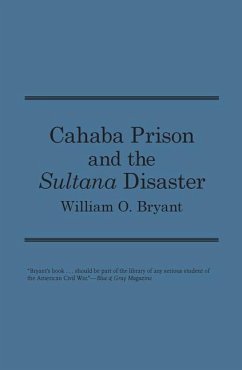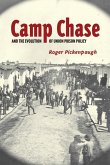Cahaba Federal Prison was reputed to be a more humane facility than other, more notorious camps, such as Andersonville, Libby Prison, Elmira, Rock Island, Johnson's Island, and Camp Douglas. Its death rate was only 5%. Yet it was a ghastly facility, formerly an agricultural warehouse and so overcrowded that, at night, each man barely had room to lie down in the compound. Worst of all, after surviving harrowing imprisonment and a forced march overland to the Mississippi River, many of Cahaba's war prisoners would perish in the deadliest maritime tragedy ever to involve a U.S. vessel -- either in war or peace -- when the Sultana steamship exploded in mid-river while transporting the soldiers back to their homes in the North. William O. Bryant pulls together the various facets of the Cahaba story in masterful style, offering a work that is not only academically sound but enjoyable to read. Balancing narrative and analysis, he sketches the background of Civil War prisons and the history of the town of Cahaba, then discusses in turn the physical layout of the prison, its commanders, the prisoners, the hospital and death rates in the camp, local women who provided medical care and food to the prisoners, violence among the inmates, a mutiny and flood that occurred during the final days of the camp, and the subsequent death of many liberated soldiers aboard the Sultana. First published in 1988, this reissue in paperback makes the poignant story of the Cahaba Prison and the Sultana disaster available again to a growing audience of Civil War historians, students, and reenactors.
Hinweis: Dieser Artikel kann nur an eine deutsche Lieferadresse ausgeliefert werden.
Hinweis: Dieser Artikel kann nur an eine deutsche Lieferadresse ausgeliefert werden.








